Paradise Island you would never know until I tell you! With the most WEIRD animal.
You think you know a lot in the world, but maybe not. Always there's something to know and find out. In South of Brazil there's an Island called Florianópolis, its a big city with population around 500k. Nature, beaches and exotic animals are the big deal there.
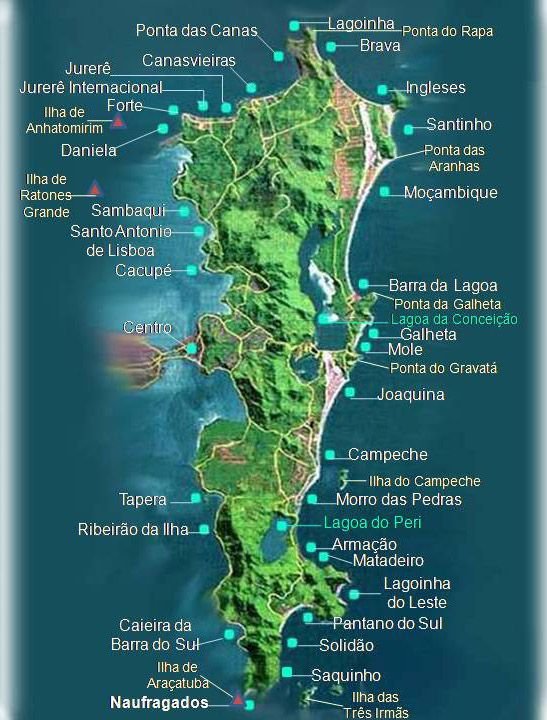
Just for you to know a little bit more that's the map of the island. What you don't know and I am about to tell you, is that in this small island there's a very small hide island called Campeche Island. People there call the Brazilian CARIBE.
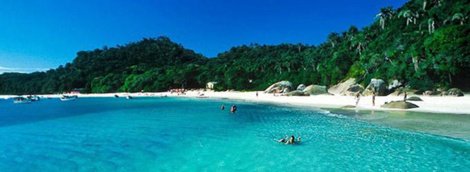
Located 1500m from the coast of Santa Catarina Island, Campeche Island is a reference for tourism in the capital of Santa Catarina. Far beyond a perfect setting to illustrate a photo on social media, the tourist site is home to a rich ecosystem and much of the state's archaeological and historical heritage. The island has more than 100 petroglyphs distributed in 10 archaeological sites, nine lithic stations, rocky monuments and occupation sites. According to archaeological research, the site has more inscriptions than Florianópolis (Ilha), Ilha do Arvoredo and Ilha das Aranhas, all together. Among the signs left by ancient people are geometric symbols, arrows, zoomorphs, anthropomorphs and masks, also found on the shores of Praia do Santinho.
The site has been under the care of the Couto de Magalhães Association since 1940 and, since 2000, listed by the National Historical and Artistic Heritage Institute in the State (Iphan-SC), as a Brazilian archaeological, ethnographic and landscape heritage. The Iphan superintendent of Santa Catarina, Cintia Costa Chamas, says that since the listing, annual renovations have been carried out, and since 2003 agreements have been made between the groups involved to standardize activities. With a difference in 2009, when Iphan published Ordinance 691 regularizing the areas of Ilha do Campeche. The norms include the monitoring of walks along the trails, visits to archaeological sites and the involvement of the community in activities and visits. For that, a zoning of the beach was carried out for the conservation and use of the Island, as shown in the image. (Graph - Iphan-sc)
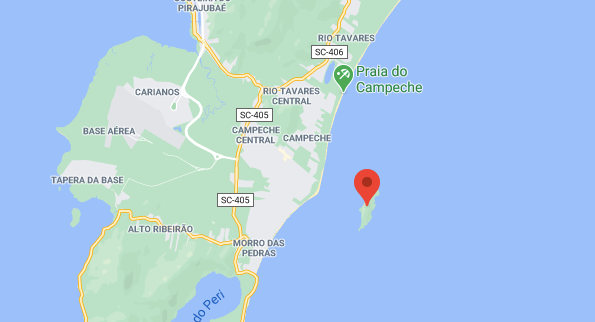
As soon as the vessels making the crossing arrive at the beach, monitors advise visitors on the rules of conduct and nature preservation that they must follow. Mário Costa Jr worked the entire last season as an on-site monitor, and admits that the great challenge that monitors face is to make visitors aware of the importance of the care they should take during their stay at the site. Collect and take away all the garbage produced, without interfering in the life of wild animals. It is also forbidden to camp, make fires, take or collect animals, shells, plants and climb the rocks and cliffs at the north and south ends of the beach. The trails and dives are made only accompanied by the monitors. All these rules in favor of the preservation of marriage. “Every use made by visitors was designed so that it causes the least possible impact”, emphasizes Mario.
"Our job consists mainly of accompanying visitors and guiding them on how to behave on the beach, in the water, on the shores and on the trails, always seeking to protect and preserve ecosystems and archaeological heritage"
The island has a small beach with clear, fine sand. The calm sea is compared to the waters of the Caribbean, due to its almost transparent coloring, which appeals to visitors of different ages. Visits take place every day of the summer, since the stay on the beach is restricted to the hours of 9am to 5pm and with capacity for 800 people per day. There is only one restaurant that remains open all summer. The beach has no dumps, so everyone is asked to collect their garbage and take it with them. During the season there are lifeguards for the safety of bathers. In emergency cases, assistance is provided only by boat or helicopter.
The boats you take to go there remember the ones in Thailand, very similar and takes about 30 min to get in there. Here are some pictures:
.jpeg)
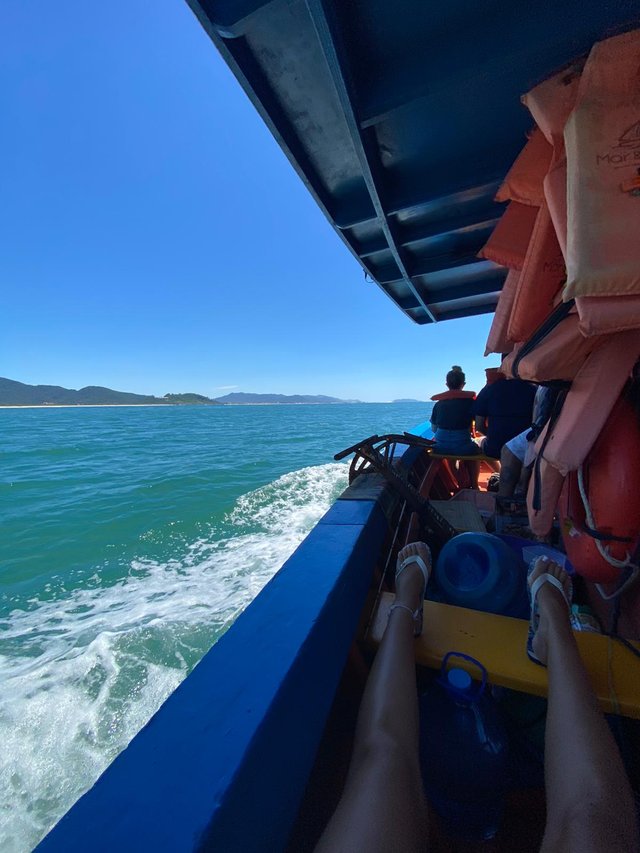
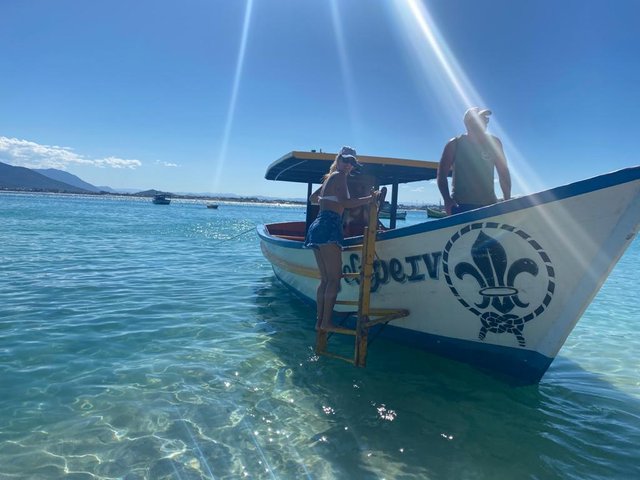
.jpeg)
Isn't this beautiful? Now finally I am going to show you the animal that ONLY lives there no where else in the world. WE call this animal QUATI and its a very native animal from the island.
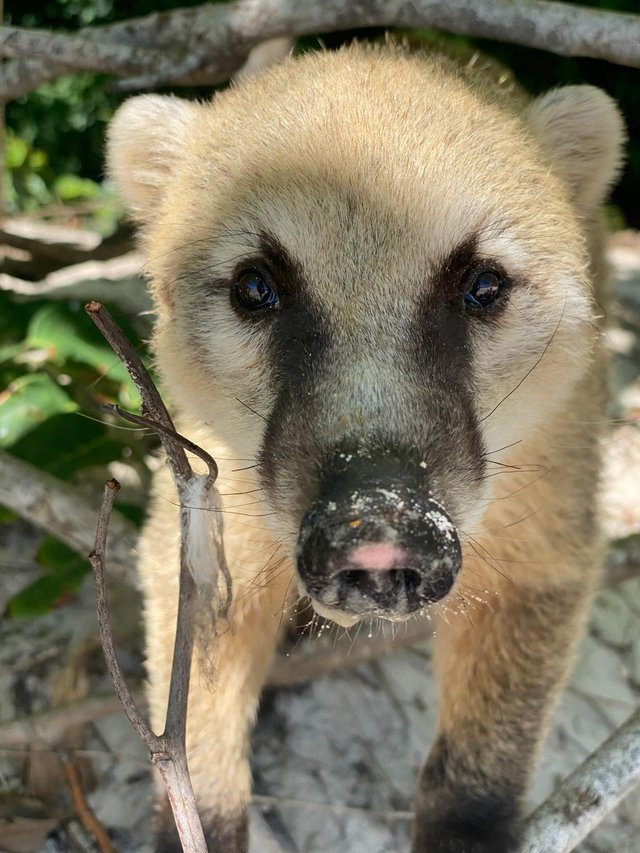
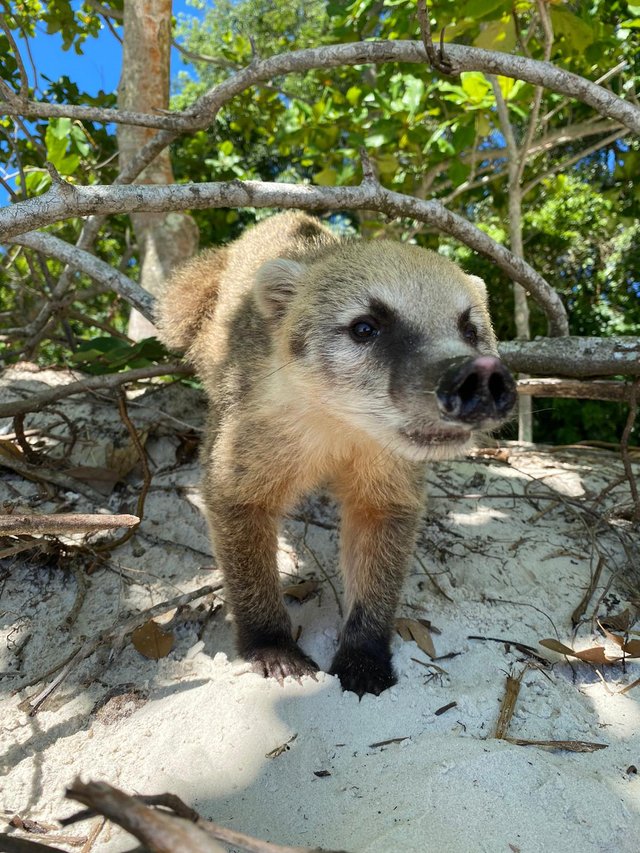
.jpeg)

To get in the island you pay R$100,00 which is around $20 dollars and they accept cash only, you can stay there for 4 hours only and you need to leave, the boat is there waiting for you.
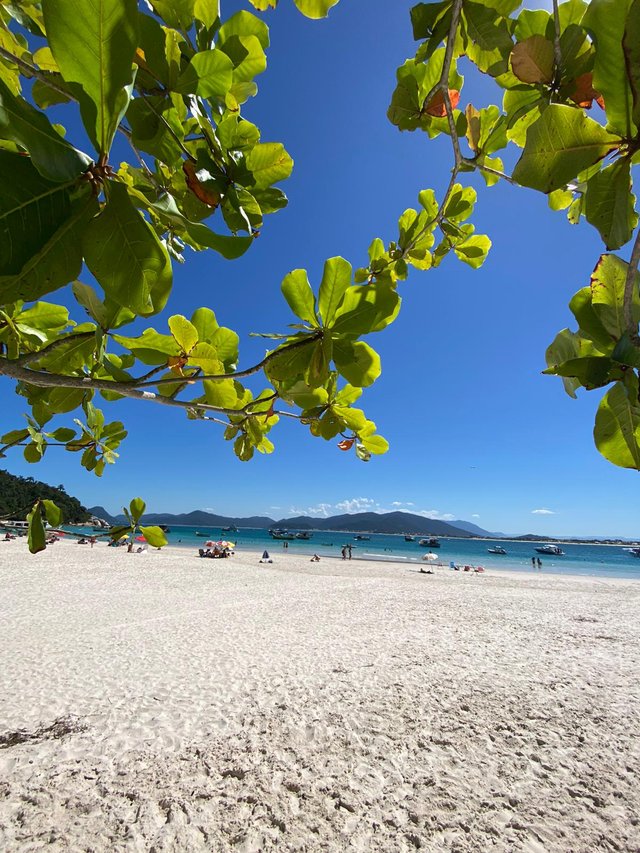
I hope you like this post, and this maybe can be your next travel destination? why not? write me what you think and I hope to see you here!